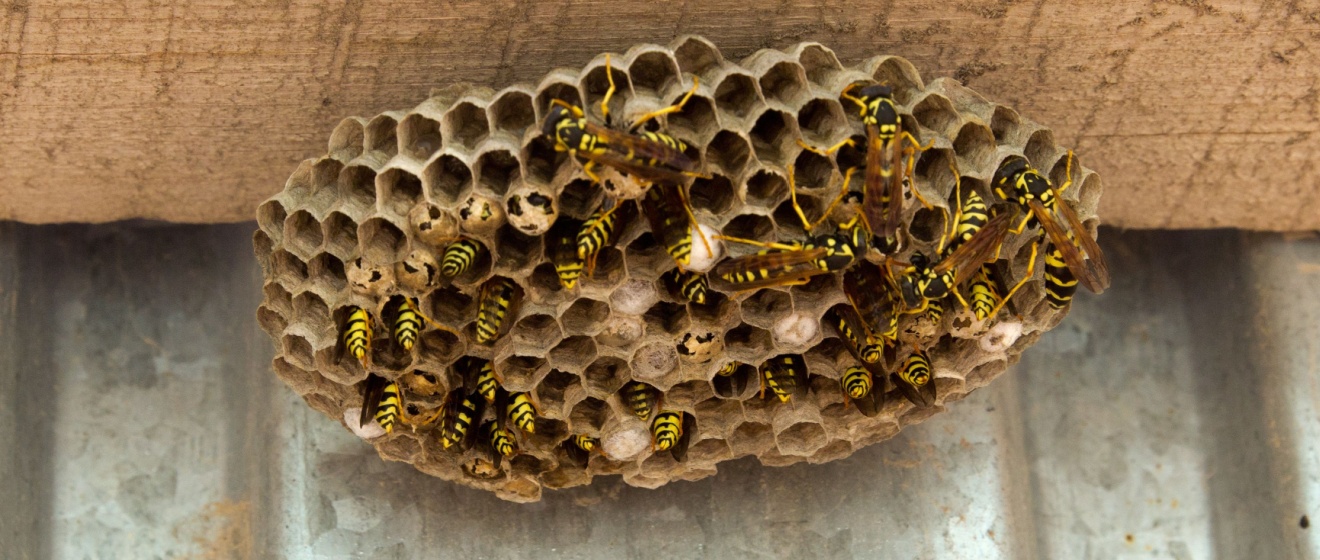Wasps are a common backyard nuisance, but their presence can be more than just an annoyance—they can pose a real threat to children and pets. Unlike bees, wasps are aggressive, can sting multiple times, and are highly territorial. For families with young kids or pets, a wasp infestation can make outdoor spaces unsafe. In this article, we’ll explore the dangers of wasps, signs of an infestation, and how to protect your loved ones.
Why Are Wasps Dangerous?
While some stinging insects are beneficial for pollination, wasps are primarily predators, hunting other insects for food. They become particularly aggressive in late summer and early fall when their colonies are at their peak. Here’s why they can be a hazard:
1. Painful Stings
Unlike bees, wasps do not lose their stinger after a single sting. This means they can attack multiple times, injecting venom that causes intense pain, swelling, and irritation. Children, who may not recognize the warning signs of an agitated wasp, are at a higher risk of being stung.
2. Allergic Reactions
Some individuals, including kids and pets, are highly allergic to wasp stings. A single sting can trigger severe reactions, including anaphylaxis—a life-threatening condition that requires immediate medical attention. Signs of an allergic reaction include:
- Swelling beyond the sting site
- Difficulty breathing
- Dizziness or fainting
- Rapid heartbeat
3. Aggressive Behavior
Wasps are highly territorial and will defend their nests aggressively. If a child or pet accidentally disturbs a nest, it can trigger an attack from multiple wasps. Swarms can deliver dozens of stings in just seconds, leading to dangerous reactions and extreme pain.
4. Hidden Nests in Play Areas
Wasps build nests in trees, under decks, in sheds, and even underground. Children and pets exploring the yard can unknowingly disturb a hidden nest, resulting in sudden and severe stings.
How to Identify a Wasp Infestation
If you notice a growing wasp population around your home, it’s essential to take action before an infestation worsens. Here are signs that indicate a wasp problem:
- Frequent Sightings: If you see wasps regularly near your home, it may indicate a nearby nest.
- Visible Nests: Wasps create papery nests in trees, eaves, attics, and sheds. Some species, like yellow jackets, build nests underground.
- Increased Aggression: If wasps seem particularly aggressive around certain areas of your yard, a nest is likely nearby.
- Buzzing Noises: Humming or buzzing sounds in walls or attics may suggest a hidden wasp colony.
If you spot a nest or an increasing number of wasps near your home, it’s time to call a professional pest control service like Delhi Pest Control for safe removal.
How to Protect Your Children and Pets from Wasps
Keeping your outdoor space free from wasps is crucial to ensuring the safety of your family and pets. Here are some effective prevention strategies:
1. Remove Food Sources
Wasps are attracted to sugary foods, meats, and open garbage. To reduce their presence:
- Keep trash cans tightly sealed.
- Clean up food and drinks immediately after outdoor meals.
- Avoid leaving pet food outside.
2. Seal Entry Points
Prevent wasps from nesting inside your home by sealing cracks and gaps in siding, windows, and vents. Repair damaged screens and inspect outdoor structures regularly.
3. Keep Play Areas Clear
Inspect swings, playsets, and outdoor furniture for wasp activity. Before letting children play outside, do a quick check for nests in hidden areas.
4. Use Natural Repellents
Certain scents, such as peppermint oil, citronella, and clove, can deter wasps. Planting these around your yard can help keep them away.
5. Call a Professional Pest Control Service
If you discover a nest or suspect a wasp infestation, do not attempt to remove it yourself. Disturbing a nest can provoke an attack, putting your family and pets in danger. Delhi Pest Control specializes in safe and effective wasp removal, ensuring that your home remains a safe space.
What to Do If Your Child or Pet Gets Stung
Despite your best efforts, stings can still happen. If a child or pet is stung, take the following steps:
- Wash the Area: Use soap and water to clean the sting site.
- Apply Ice: Reduce swelling and pain by applying an ice pack wrapped in a cloth.
- Use Antihistamines: For mild swelling or itching, antihistamines like Benadryl can help. Consult a doctor before giving medication to a child.
- Monitor for Allergic Reactions: If symptoms of anaphylaxis occur, seek emergency medical help immediately.
- Keep the Wound Clean: For pets, prevent excessive licking of the sting area to avoid infection.
Why Choose Delhi Pest Control for Wasp Removal?
At Delhi Pest Control, we understand the risks wasps pose to families and pets. Our expert team provides professional inspections, nest removal, and preventative treatments to keep your home safe. With years of experience handling aggressive stinging insects, we ensure a fast, effective, and safe solution.
Don’t let wasps threaten your loved ones—contact Delhi Pest Control today for expert wasp control and prevention!

